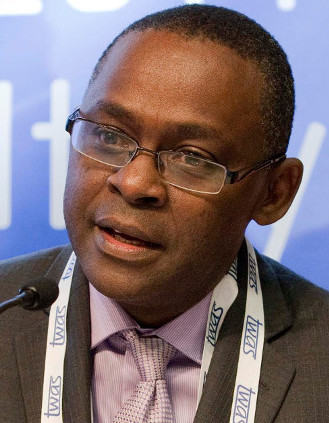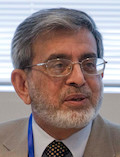 The Commission on Science and Technology for Sustainable Development in the South, or COMSATS, and TWAS have signed an agreement that strengthens science diplomacy cooperation between the two institutions.
The Commission on Science and Technology for Sustainable Development in the South, or COMSATS, and TWAS have signed an agreement that strengthens science diplomacy cooperation between the two institutions.
During a ceremony at the Pakistan Academy of Sciences, held on 17 June, COMSATS Executive Director Imtinan Qureshi and TWAS Executive Director Romain Murenzi endorsed a memorandum of understanding (MoU) whereby the two institutions agree to organize joint initiatives in science diplomacy.
Science diplomacy is a field where TWAS is actively operating since 2011, when the Academy signed an agreement with the Ame rican Association for the Advancement of Science (AAAS) with the aim of having an impact on key international issues where transboundary cooperation is essential.
rican Association for the Advancement of Science (AAAS) with the aim of having an impact on key international issues where transboundary cooperation is essential.
Under the recent agreement, COMSATS and TWAS will join forces to promote a proactive use of science diplomacy by sharing data access, documents, studies and statistics. Through this partnership, they create a platform to implement access of developing countries to courses, lectures, workshops, and aim at stimulating international commitment on issues of general interest.
COMSATS, founded in 1994 by Pakistani Nobel Laureate Abdus Salam, the founder of TWAS and of the Abdus Salam International Centre for Theoretical Physics (ICTP), is an international organization based in Islamabad, Pakistan, that works to close the science gap between developed and developing countries. Partnering with institutions worldwide, COMSATS has supported studies on environmental issues, risk reduction, climate change, and development of new materials and technologies. Through collaborative efforts, it has stimulated scientific engagement of centres based in countries that do not belong to COMSATS. Its science diplomacy programme was launched in February this year.
The Academy's collaboration with COMSATS dates back to COMSATS' inception. During more than 20 years it has been highly productive, as proved by initiatives such as joint PhD and postdoctoral fellowship programmes, meetings and publications.
Cristina Serra

